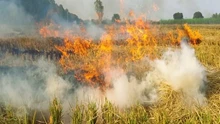
The jute industry in West Bengal is in dire straits. It is saddled with twin problems of higher production and lower demand for jute bags, particularly for packaging foodgraains. Its annual demand has slumped from 38-39 lakh bales in 2021-22 to an estimated 30 lakh bales in 2024-25, resulting in surplus, and leading to reduction in jobs.
According to industry sources, orders for only 3.63 lakh bales have been received for the ongoing Kharif Marketing Season 2024-25. This is in stark contrast to the planned indents of 7.17 lakh bales by June 2024, that is, operating at only 40 to 50 per cent capacity.
The problem has been compounded by the sugar industry, which has not fully complied with the mandatory packaging directives. Only 7 per cent of production was packed in jute bags this season, against the mandated 20 percent.
Against this grim scenario, West Bengal Labour Minister Moloy Ghatak will meet jute mill managements to address the looming crisis in the sector. The meeting assumes significance as unions as well as mill owners have sought the state government's intervention to tackle the current challenges.
Representatives of jute mills' trade unions have already met Ghatak to discuss the decline in government orders. They highlighted production cuts arising out of inadequate purchase contracts and supply orders from the jute commissioner's office. They also voiced deep concern over the industry's slowdown and its serious ramifications for workers.
They said that attention of the central government, especially the Ministry of Textiles, should be drawn towards these issues to ensure that the Jute Packaging Materials Act and Jute and Textiles Control Order are implemented in the right earnest. Besides, their implementation should be monitored strictly.
The West Bengal government intends to take effective steps to tide over the crisis and help the jute industry, which supports 40 lakh jute farmers and 4 lakh workers in the state. The jute industry is a major and ancient industry in India that is important to the country's economy. India is the world's leading producer of jute goods, accounting for about 70 per cent of the world's estimated production.
The industry is especially prevalent in eastern states like West Bengal and Assam, where 99 per cent of jute crop cultivation is concentrated. Other major jute-producing states include Bihar, Orissa, and Andhra Pradesh.
Jute is a low-cost, versatile fiber that is natural, renewable, biodegradable, and eco-friendly. It has many uses, including packaging materials like gunny bags, burlap sacks, cordage, and cloth. In India, most jute goods are used for packaging in the domestic market.
In the financial year 2020, jute contributed more than Rupees 37 billion to the Indian economy. India exports jute and jute products to many countries, including the USA, the UK, Australia, Belgium, Egypt, Germany, Italy, Japan, Saudi Arabia, and Turkey.
The first jute mill in India was established in 1855 at Rishra, on the Hooghly River near Kolkata. The National Jute Board has implemented several schemes and initiatives to modernise and develop the industry.













